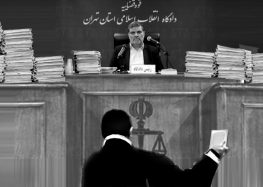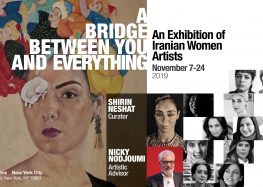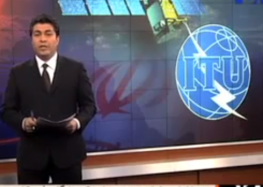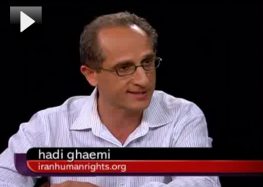Repressed in Iran need SA’s support
![]()
——————————-
© Copyright 2010 Independent Newspapers (UK) Limited. All rights reserved.
23 April 2010
As a guest scholar at the University of Cape Town, I have been studying South Africa’s peaceful transition from apartheid rule to a democratic constitution with much curiosity.
My generation grew up in Iran with the daily news of your struggles against apartheid. From far away, we followed how Nelson Mandela led the nation towards reconciliation non-violently. We have loved him for his vision and gained much inspiration.
Today’s Iranian youth, through the window of the internet, still look upon the South African model with much admiration and are eager to learn from it.
You may be wondering why we should make such comparisons and if the Iranian regime is a form of apartheid. The answer is yes. For the past 31 years, Iranians have been facing a form of apartheid and have struggled to bring it to the negotiation table through peaceful means. They have not given up and continue to pursue this path.
Apartheid is a form of laws and regulations that discriminate between citizens based on their race, creed, religious or political beliefs, or gender. It does not view all humans, the creations of God, on similar and equal footing.
This view of governance is ruling over Iran and the police are empowered to repress and punish the system’s critics with utmost brutality.
In Iran, laws are so cruel that the death penalty is administered not just against violent criminals but extensively applied. According to Amnesty International, Iran ranks second for the total number of executions worldwide.
Your young democracy, only 15 years old, has abolished the death penalty and your Constitutional Court has ruled that the death penalty is in contravention of the right to life, which is recognised in the constitution.
Death by stoning is a legal punishment in Iran and its victims are mostly women. Execution sentences for children under the age of 18 who commit offences are regularly doled out. Such offenders are held in jails for several years, until they reach the age of 18, and then are executed.
Amputations are a form of punishment and its latest implementation took place a few days ago in the city of Bushehr, where a young man accused of burglary had a hand and leg amputated.
Iranian women, representing half of the population, suffer from widespread legal discrimination and are deprived of the most basic right to choose their own clothing.
Religious minorities that are recognised under the Iranian Constitution do not enjoy equal rights. Those who are not recognised under the Constitution suffer greatly from many forms of discrimination. Members of the Baha’i Faith, representing the largest religious minority, are not recognised under the law. Baha’is cannot even attend universities, forcing Baha’i youth to leave the country if they wish to obtain higher education.
Elections in Iran are not free. A large segment of the Iranian population who do not demonstrate their absolute and unquestioning loyalty to the regime are banned from parliamentary and presidential elections. Thus, only a partial segment of the population is present in the political sphere.
Iran’s social realities do not conform to this system of apartheid. Iran’s high rates of literacy, university education, and women in higher education have resulted in many social, cultural, and scientific achievements which are inconsistent with the prevailing forms of “apartheid”.
These contradictions have created grave political and economic crises which the government is containing with every conceivable use of police and militia forces, to pretend no crisis exists. The Iranian judiciary has lost all semblance of independence and impartiality and is another tool in the service of full repression.
Today’s Iran is comparable to South Africa’s political situation in the 1980s. A decade later when the Truth and Reconciliation Commission started investigating and revealing the atrocities committed by the apartheid police the images of the commission’s sessions, with white anti-apartheid activists crying hand in hand with the victims of apartheid’s brutalities and the bitter-sweet moments that eventually reconciled this nation, are powerful reminders for Iranians that perhaps we can do this too. We are inspired by your philosophy of peaceful reconciliation.
The more I learn of how your peaceful revolution succeeded, the more I am perplexed by your government’s foreign policy towards Iran, particularly in the past year. The police brutality unleashed in Iran during the past year is no less than the events of the Sharpeville massacre of 1960 when the apartheid regime shed the blood of many innocent civilians.
Make no mistake, we understand the economic incentives driving your foreign policy towards Iran. We are not expecting the severing of diplomatic and economic relations, especially as you face high unemployment and a housing crisis. But we do expect that South Africa’s policy toward Iran take into account your own struggle and our current struggle.
We expect South Africa to recognise the respectful place of Mandela’s writings and posters in many homes of Iranians who look upon him for inspiration.
Iran is undergoing a severe human rights crisis. Yet its government is seeking membership to the UN Human Rights Council.
The widespread imprisonment, torture and rape that followed last year’s presidential election must not be forgotten.
The South African government should not vote favourably for Iran’s membership to the Council. Help us learn from your peaceful model of overcoming apartheid and do not let a regime based on many forms of discrimination increase its repression even more.
Mehrangiz Kar is a distinguished Iranian lawyer who is currently the Eric Abraham Academic Visitor at Cape Town University’s Department of Law.




